American jurist and legal scholar Oliver Wendell Holmes Jr. once famously said, “Learn from the mistakes of others (…) You can’t live long enough to make them all yourself!”
Every entrepreneurial journey is inevitably filled with failures, you simply can’t avoid them. But if it’s true that every error is an opportunity to improve, why not learn from other people’s mistakes too? This is exactly why we decided to interview ten female entrepreneurs to ask them about the main takeaways learned from their past errors.
1. Avoidance is your enemy
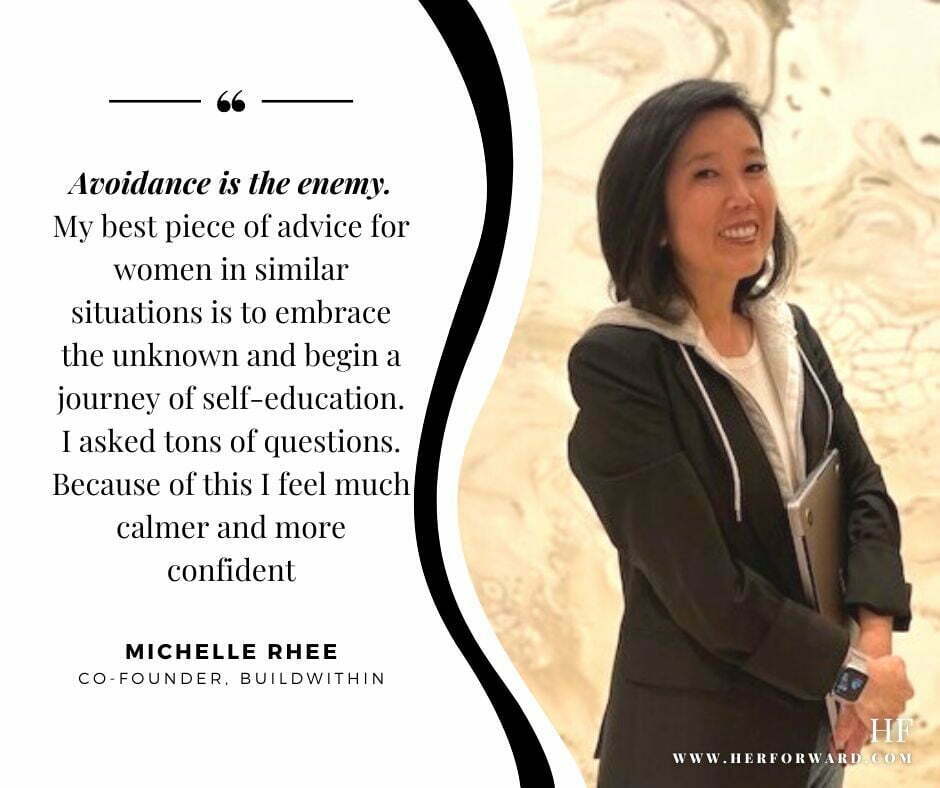
When Michelle Rhee founded BuildWithin, a company for employers to find, onboard, and accelerate the productivity of new-collar workers, she knew nothing of the tech world. “It was harder for me to figure out where I stood on issues and make quick decisions,” said Rhee. As a consequence, she often passed all the technical conversations to her co-founder. But Rhee soon realized this was not going to work in the long run. So, she decided to start educating herself on the topic. “My best piece of advice for women in similar situations is to embrace the unknown and begin a journey of self-education,” said Rhee. “I (now) feel much calmer and more confident (…). It has been a game changer.”
2. Hire slowly and fire quickly
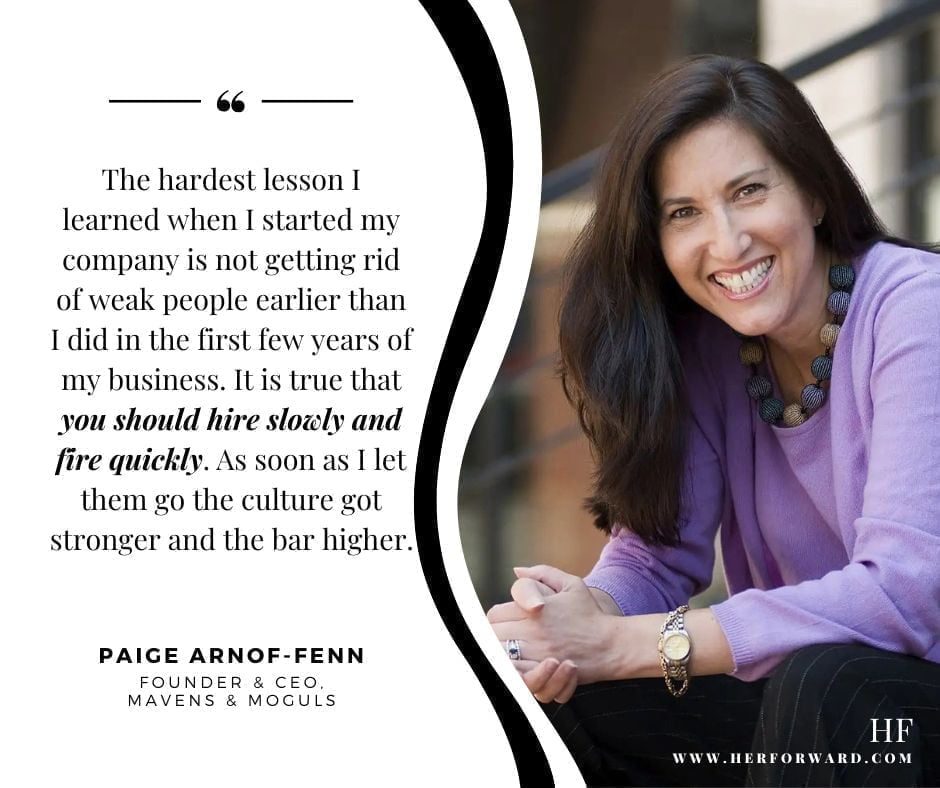
Firing someone is never easy, but sometimes it’s necessary. Paige Arnof-Fenn, founder and CEO of the global strategic marketing consulting firm Mavens & Moguls, said, “The people you start with are not always the ones who grow with you.”
Arnof-Fenn experienced this first-hand when she realized that not all the people she hired at the beginning of her entrepreneurial journey could keep up with her brand standards. “I spent more time managing them than finding new customers. I knew in my gut they were not up to snuff but out of loyalty to them I let them hang around much longer than they should have.” Finding the strength to fire them was what made the difference. “As soon as I let them go the culture got stronger and the bar higher,” said Arnof-Fenn.
3. Remain nimble
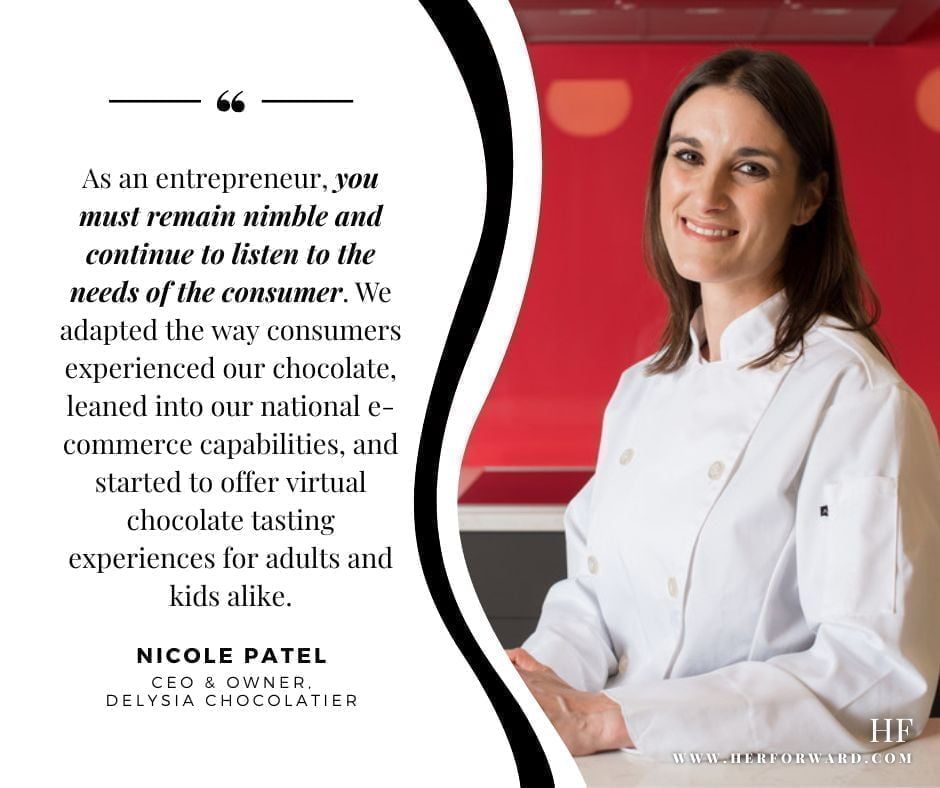
“As an entrepreneur, you must remain nimble and continue to listen to the needs of the consumer,” said Nicole Patel, CEO & owner of the chocolate company Delysia Chocolatier. Patel started her business in 2008 during the height of a financial crisis, but despite this, she managed to succeed. Twelve years later, she had to face the Covid-19 pandemic that led to ingredient shortages and financial challenges. According to Patel, what helped her keep her business going was her nimbleness and passion. “It was my undeniable passion and nimbleness that allowed us to pivot the business model so we could continue serving superior, handcrafted chocolate without shortcuts,” said Patel.
4. Put your trust in SOPs
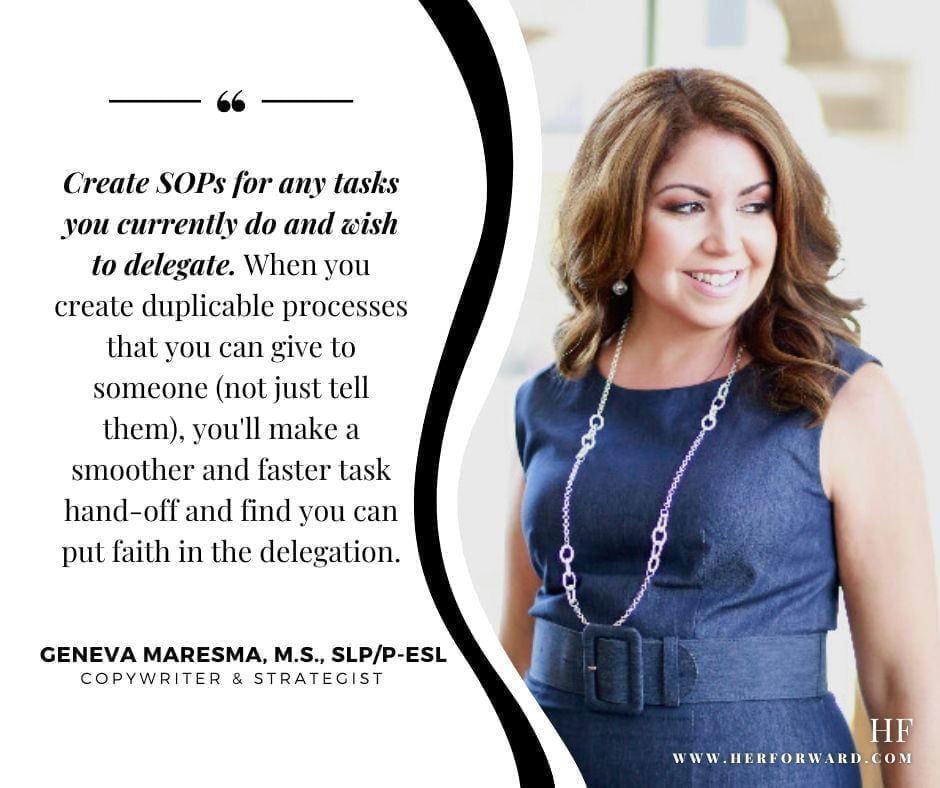
Similarly to most other female entrepreneurs, Geneva Maresma, a Tampa-Based Copywriter and Strategist, struggled a lot with delegating tasks. “I need assurance that when others are doing work for me, my clients will have an equivalent experience aligned with my standards and brand,” said Maresma. To solve this problem, she started to use standard operating procedures (SOPs). According to her, these can include everything from workflow steps to links to email templates and information on your brand guidelines. SOPs helped Maresma put faith in the delegation process and allowed her to uphold the standards of her business.
5. Own your ‘I’
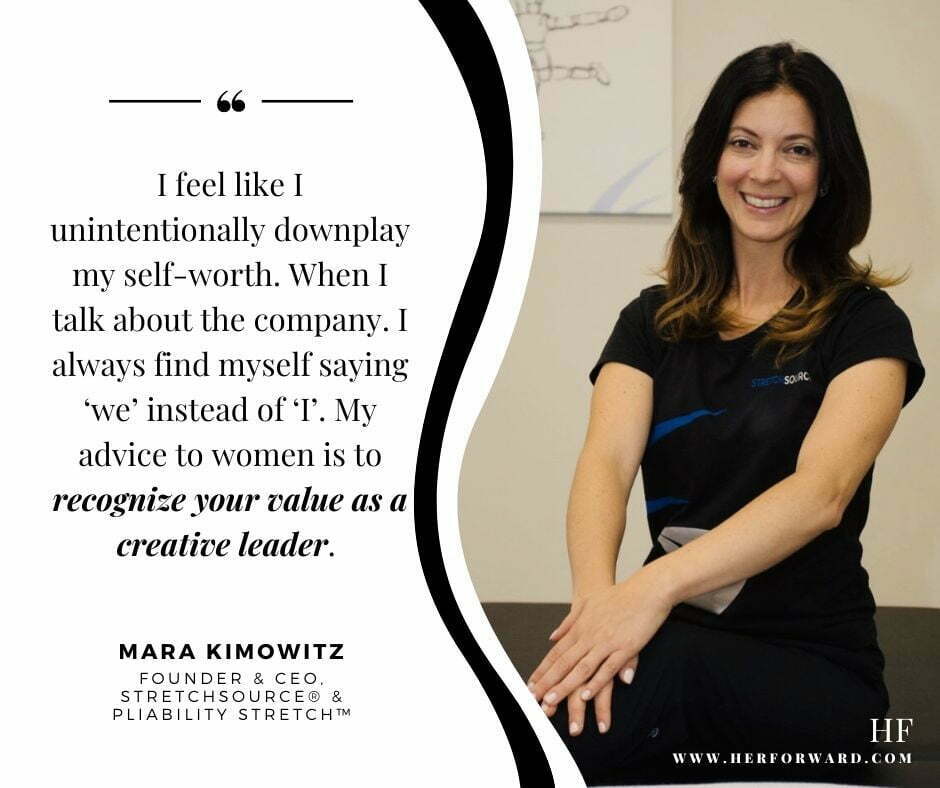
Imposter syndrome is one of the most common challenges female entrepreneurs have to face. Mara Kimowitz, founder and CEO of StretchSource® and Pliability Stretch™ two companies offering stretching courses, said she had a hard time owning her accomplishments and conveying her value as a leader. “I feel like I unintentionally downplay my self-worth. When I talk about the company. I always find myself saying ‘we’ instead of ‘I’. Using the first person to discuss the success or growth of the company feels like I’m bragging.” With time, Kimowtz learned the importance of understanding and embracing your value as a creative leader for the success of your company. She suggests not being afraid of taking credit for your achievements and using the ‘I’ without fear.
6. Your team is the essence of your company
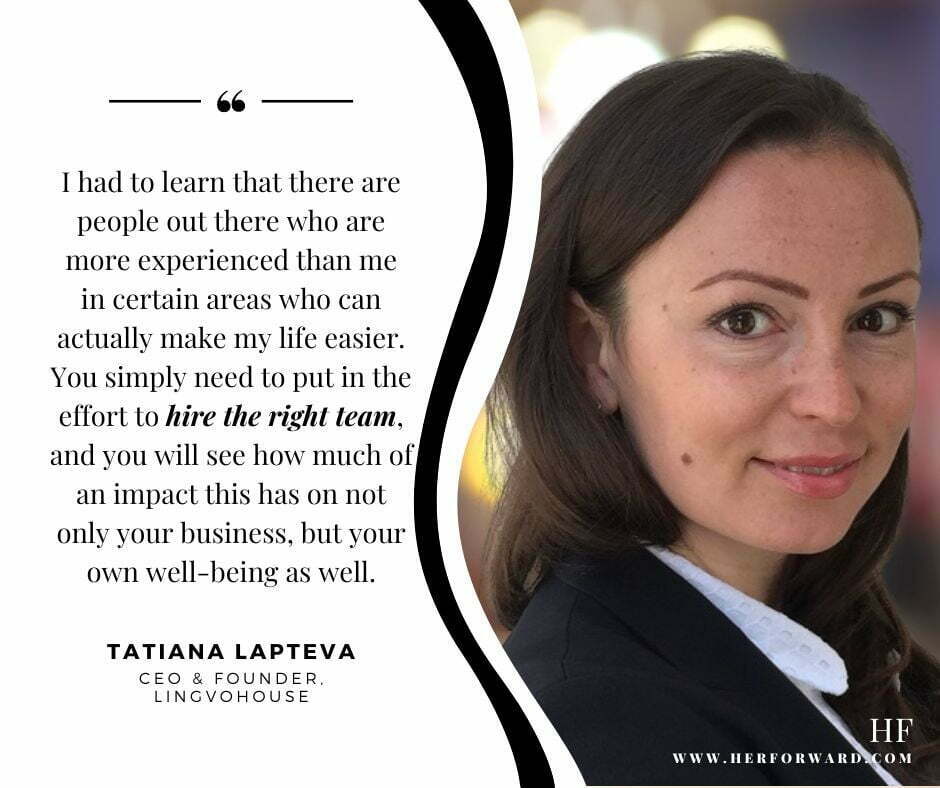
According to Tatiana Lapteva, founder and CEO of a translation company known as LingvoHouse, your team is the essence of your business. Despite this, delegating your tasks can be scary. “I am not someone who is controlling by any means, but I do find it tough as an entrepreneur to let people in who just want to help make my business a success.” To scale up her business, Lapteva had to learn that some people were simply more experienced than her in certain areas. “You simply need to put in the effort to hire the right team, and you will see how much of an impact this has on not only your business, but your own well-being as well,” said Lapteva.
7. Assertiveness goes far
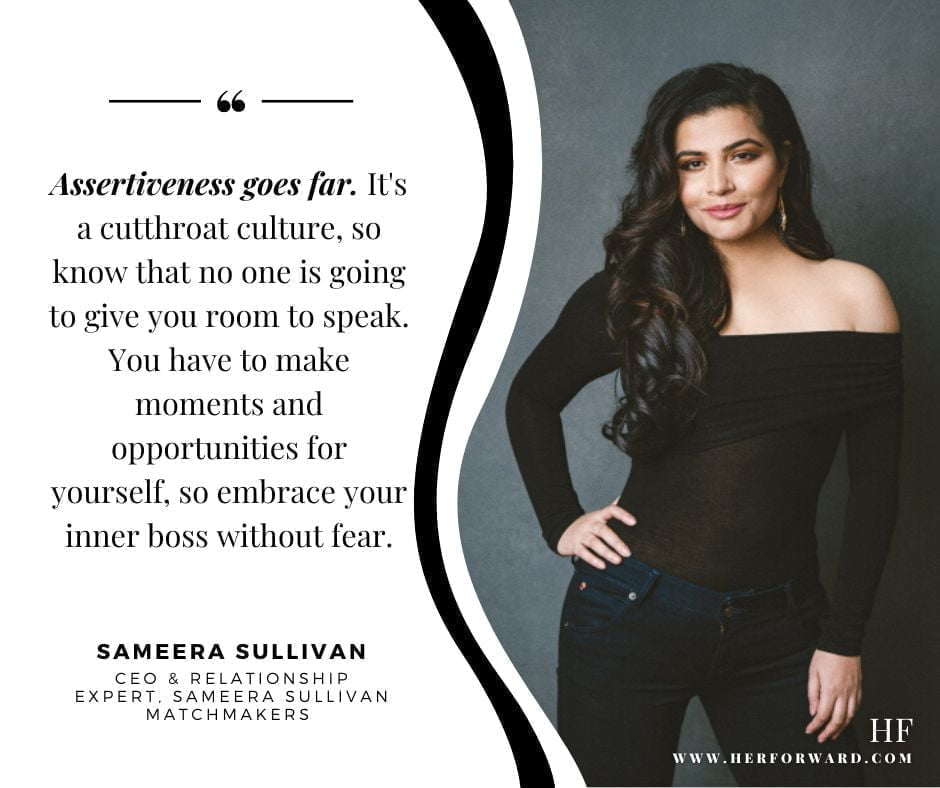
“If you think you can be polite and meek throughout the journey, then you’re wrong,” said Sameera Sullivan, a relationship expert, and CEO of Sameera Sullivan Matchmakers. “It’s a cutthroat culture, so know that no one is going to give you room to speak.”
According to Sullivan, if you want to succeed you need to embrace your assertiveness. “You have to make moments and opportunities for yourself, so embrace your inner boss without fear. Practice it when a man cuts you in line, cuts you while you speak, when presenting an idea, during presentations, and during salary negotiations,” said Sullivan.
8. Your hang-ups about money are not your clients’ hang-ups about money
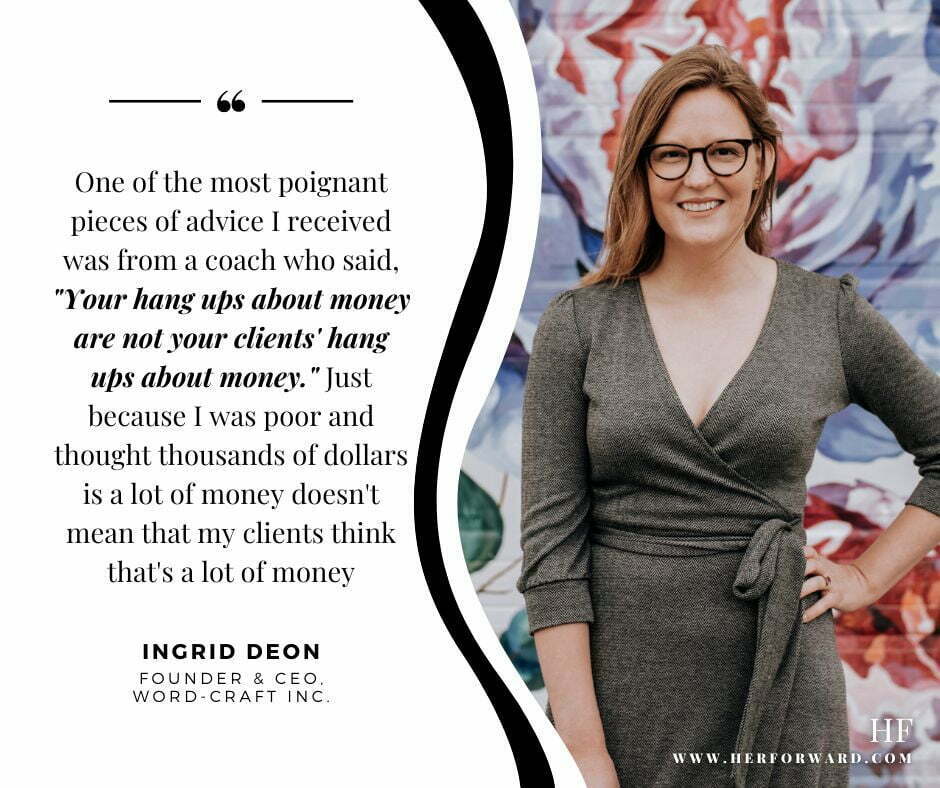
“Pricing has always been a struggle for me,” said Ingrid Deon, founder and CEO of the award-winning social media marketing agency word-craft inc. A few years before starting her business, Deon was a single mom struggling financially. “I got very used to ‘just getting by’ (…) so asking my clients to pay thousands of dollars for my business‘ services can be overwhelming.” To fight her guilt, Deon decided to work with a couple of coaches who pushed her to increase her prices. But the turning point came when one of them made her realize that her hang-ups about money were not her clients’ hang-ups about money. “That hit home. Just because I was poor and thought thousands of dollars is a lot of money doesn’t mean that my clients think that’s a lot of money,” said Deon.
9. One scary task a day keeps failure away
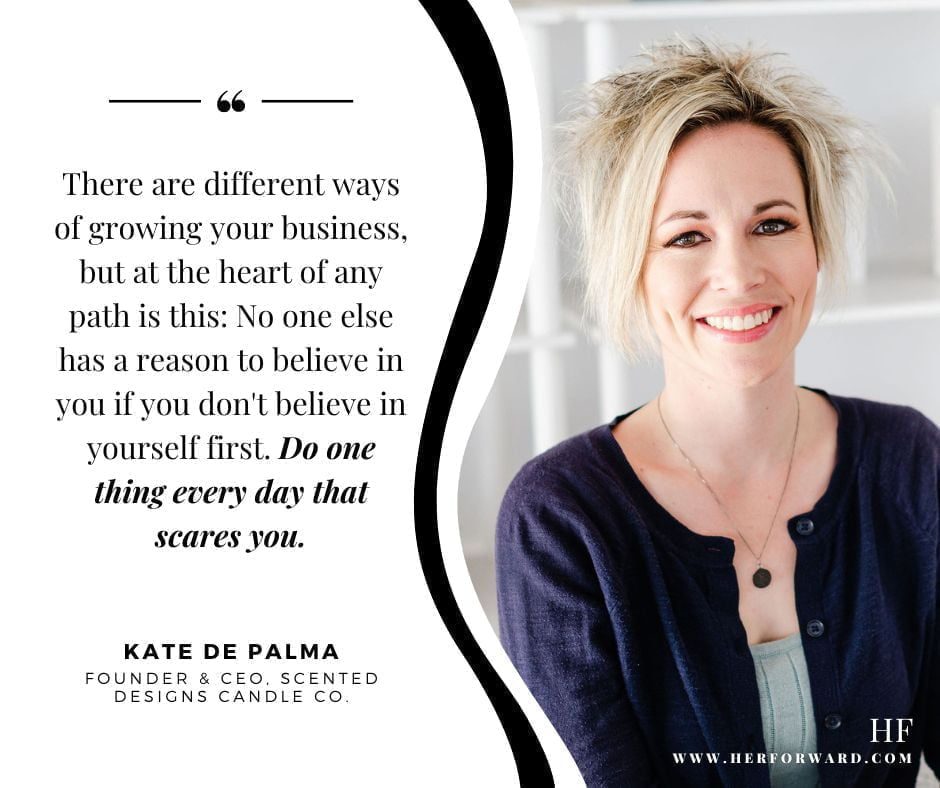
Once you become a successful entrepreneur, it is important for you to fully own your success. Unfortunately, for most female entrepreneurs this is often a struggle. Kate de Palma, founder and CEO of Scented Designs Candle Co., had to fight with imposter syndrome for a long time, “I played small with my business for years because I didn’t feel like I belonged with the ‘big boys’.” De Palma kept clinging to labels such as ‘small business owner’ because it felt safer and rarely took big risks. Now her mentality has completely changed. “No one else has a reason to believe in you if you don’t believe in yourself first,” said De Palma. To increase your self-confidence, De Palma suggests pushing yourself to do a scary thing every day.
10. Get people to take you seriously
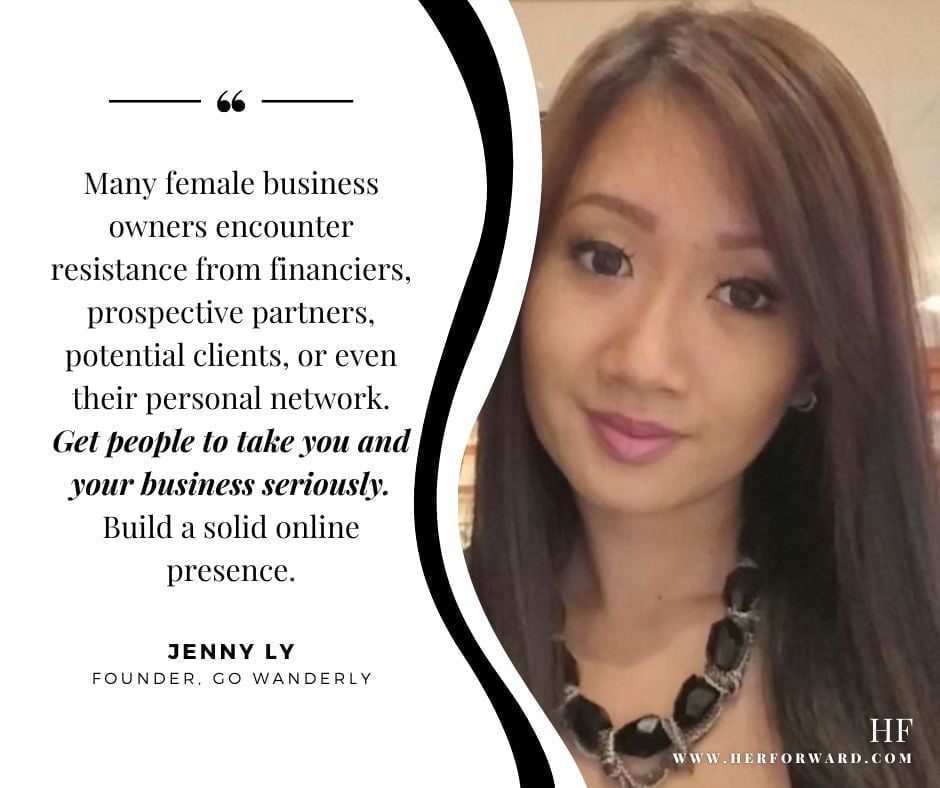
According to Jenny Ly, the founder of a successful travel blog known as Go Wanderly, the most difficult challenge female entrepreneurs face is to be taken seriously. “When I tell most men what I do, they don’t get it. They fail to understand why that would be necessary.” Ly suggests creating a strong online presence to solve the issue. “Having a clear and appealing online appearance immediately gave Go Wanderly legitimacy while also enabling deeper emotional and intimate connections with visitors,” said Ly.

